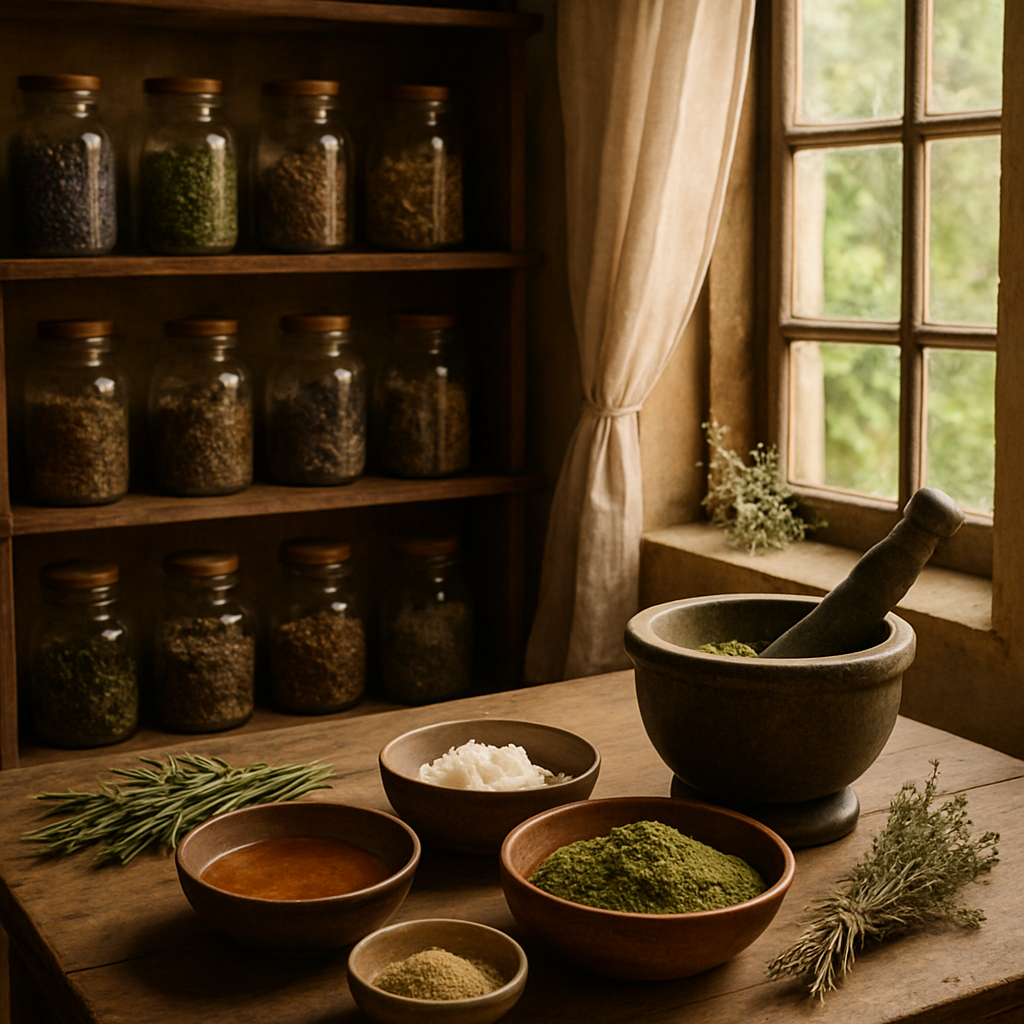Unlocking the Secrets to Healthier Hair with Ancient Remedies

When we talk about hair care, the allure of ancient remedies often sneaks into the conversation, carrying the promise of robust, luscious locks. There’s something undeniably fascinating about the thought of using time-tested methods that have been passed down through generations. It’s like discovering a treasure map to healthier hair that our ancestors left for us. I’m sure you’ve seen some of these remedies floating around coconut oil, aloe vera, and the like. They have a certain mystique, promising results that modern science sometimes takes a while to catch up with. So, what’s the deal with these ancient remedies? Are they just old wives’ tales, or is there something truly magical about them?
The Magic of Oils
Let’s start with oils. They’ve been a part of hair care for centuries, and for good reason. Take coconut oil, for instance. It’s like the Swiss army knife of the beauty world. Not only does it smell like a tropical vacation, but it’s also rich in fatty acids, which can penetrate the hair shaft and nourish it from the inside. This is backed by a study published in the Journal of Cosmetic Science, showing how coconut oil can reduce protein loss in both damaged and undamaged hair (Rele and Mohile, 2003).
Then there’s argan oil often called “liquid gold.” Originating from Morocco, it’s packed with vitamin E and antioxidants. I remember the first time I tried it. I was skeptical, as my curls are notoriously finicky, but after a few uses, I noticed a softness that wasn’t there before. And while it didn’t magically turn my hair into a Hollywood star’s mane, it sure felt like it was on its way.
Some people swear by using olive oil as a deep conditioner. I have a friend, Sarah, who slathers it all over her hair every Sunday. She insists it’s the reason for her shiny, strong hair. While I can’t fully commit to the idea of my hair smelling like a salad, I can’t argue with her results. Olive oil is rich in oleic acid and squalene, which can make hair more manageable and less prone to breakage.
Herbs and Flowers Galore
Herbal remedies are another ancient treasure trove. Take henna, for example. It’s not just for body art. Henna has been used for centuries in India and the Middle East as a natural dye and conditioner. It coats the hair shaft, adding weight and smoothing the cuticle. However, if you’re not into the idea of reddish-orange hues, it might not be for you. But hey, if you’re feeling adventurous, it could be worth a shot.
Then there’s rosemary. I used to think of it as just a kitchen herb, but it’s also a hair tonic. Rosemary oil is believed to stimulate hair growth, and there’s even some evidence to back this up. A 2015 study found that rosemary oil was as effective as minoxidil, a common hair growth treatment, after six months of use (Panahi et al., 2015). Who knew a humble herb could compete with pharmaceuticals?
Aloe vera is another herb that’s been used for its moisturizing properties. Slathering aloe vera gel on your scalp feels like giving it a drink of water. It’s soothing, and it can help with scalp irritation. I once tried using it straight from the plant, cutting a leaf and applying the gel directly. It was a bit messy, and my bathroom looked like a crime scene, but my scalp felt refreshed.
The Role of Diet and Lifestyle
Now, it’s not just about what you put on your hair. What you put into your body matters, too. Ancient remedies often included dietary components, and modern science agrees that nutrition plays a big role in hair health. Foods rich in omega-3 fatty acids, like salmon and flaxseeds, promote hair growth and shine. Dr. Lisa Mosconi, a neuroscientist and nutrition expert, points out in her book “Brain Food” that the same nutrients that feed your brain also feed your hair. A balanced diet with plenty of vitamins and minerals supports strong, healthy hair.
Stress management is another factor. The ancient wisdom of meditation and yoga helps not only with mental well-being but also with combating hair loss. When I was going through a rough patch at work, my hair seemed to fall out more than usual. A few months of regular yoga, and things started improving. Coincidence? Perhaps, but I prefer to think of it as a holistic approach to caring for myself, inside and out.
The Perils of Modern Styling
Let’s face it, our ancestors didn’t have flat irons, blow dryers, or chemical dyes. While these tools help us achieve the styles we love, they can also be damaging. Heat styling, in particular, can strip hair of its natural oils and lead to breakage. This is where ancient remedies can come in handy, offering gentler alternatives.
If you’re a heat styling addict, consider incorporating some of these age-old treatments. A weekly oil treatment can replenish lost moisture, and using a wooden comb instead of a plastic one can reduce static and breakage. It might sound a bit odd, but I switched to a wooden brush on a whim, and I noticed less frizz almost immediately.
The Wisdom of Simplicity
Perhaps the biggest secret hidden in ancient remedies is their simplicity. In a world (oops, almost slipped there) where we’re bombarded with a million different products, each promising miraculous results, it’s easy to overlook the basics. Our ancestors didn’t have access to the vast array of products we do, yet they managed to maintain healthy hair.
Maybe it’s time to take a page from their book and simplify our routines. Strip it back to the essentials and see what happens. It’s a bit like clearing out the clutter in your closet and finding that perfect outfit you forgot you had.
A Parting Thought
So, where does that leave us? Should we all ditch our modern products and wholeheartedly embrace ancient remedies? Not necessarily. It’s about finding a balance that works for you. Incorporating a few of these time-tested treatments can enhance what you’re already doing. And who knows, you might just discover a new favorite ritual that adds a touch of magic to your routine.
If nothing else, it’s a reminder that sometimes, the best solutions are the simplest ones. And if you happen to feel a bit more connected to the past, like you’re sharing a secret with those who came before us, well, that’s just a bonus.


